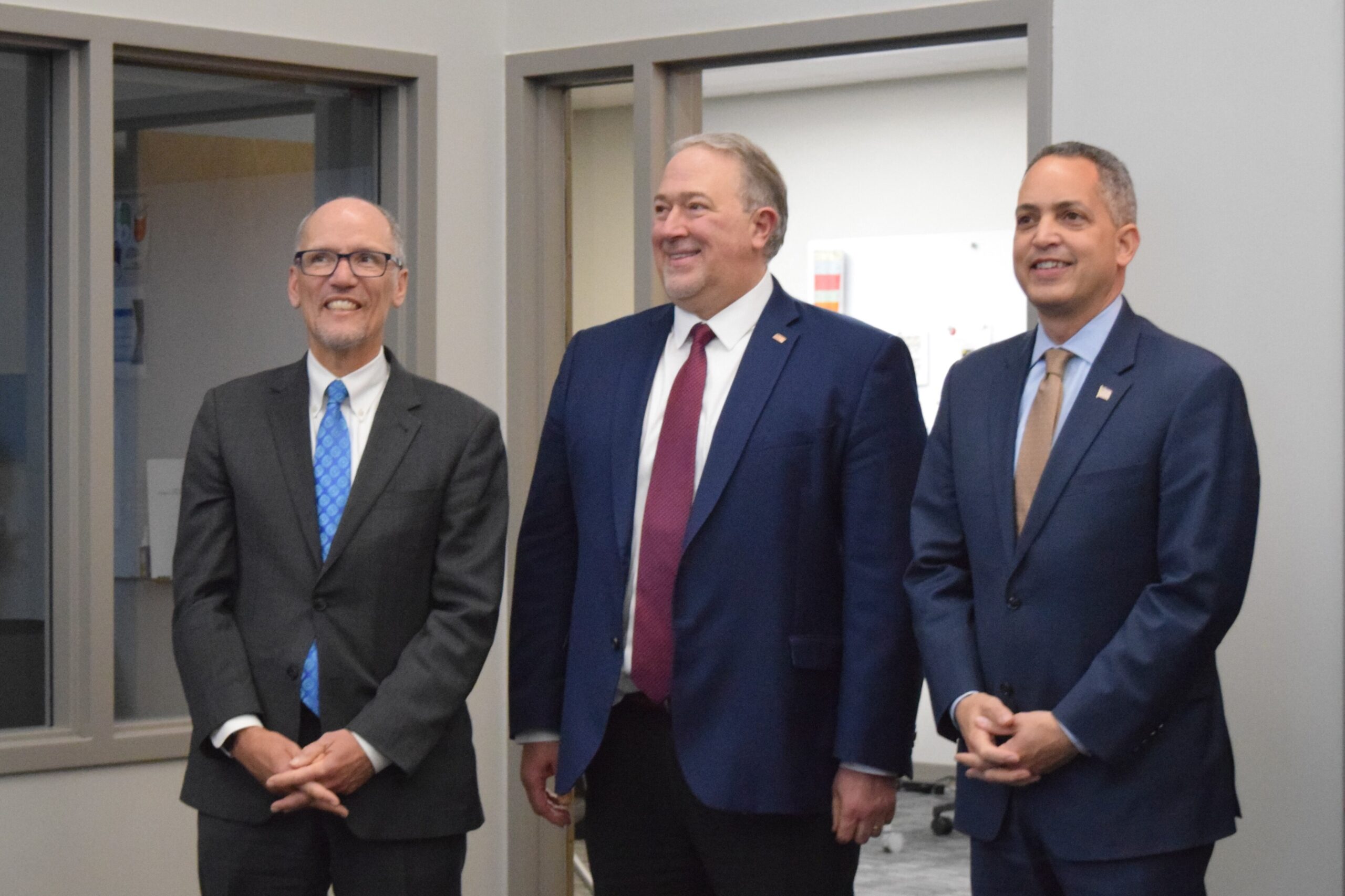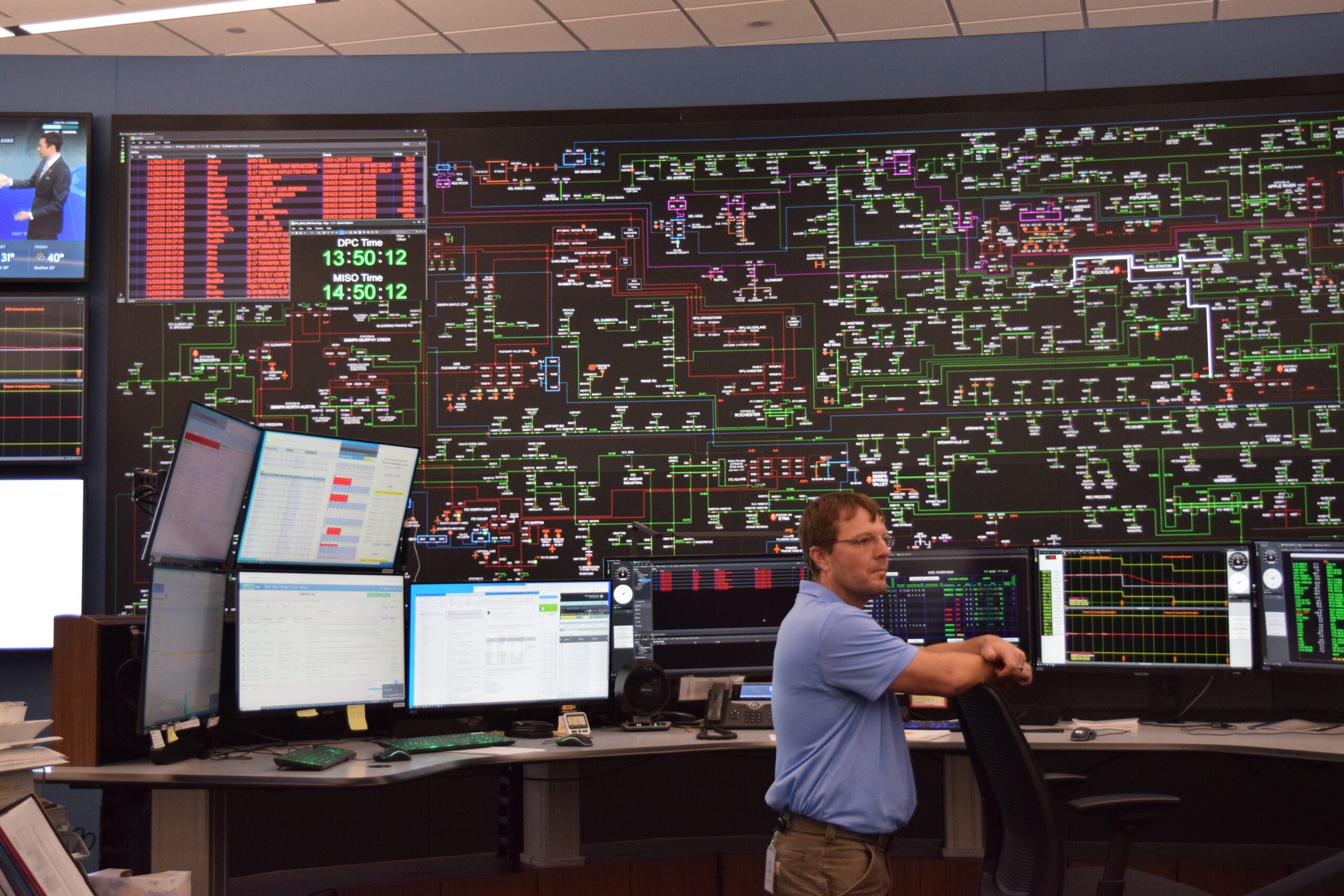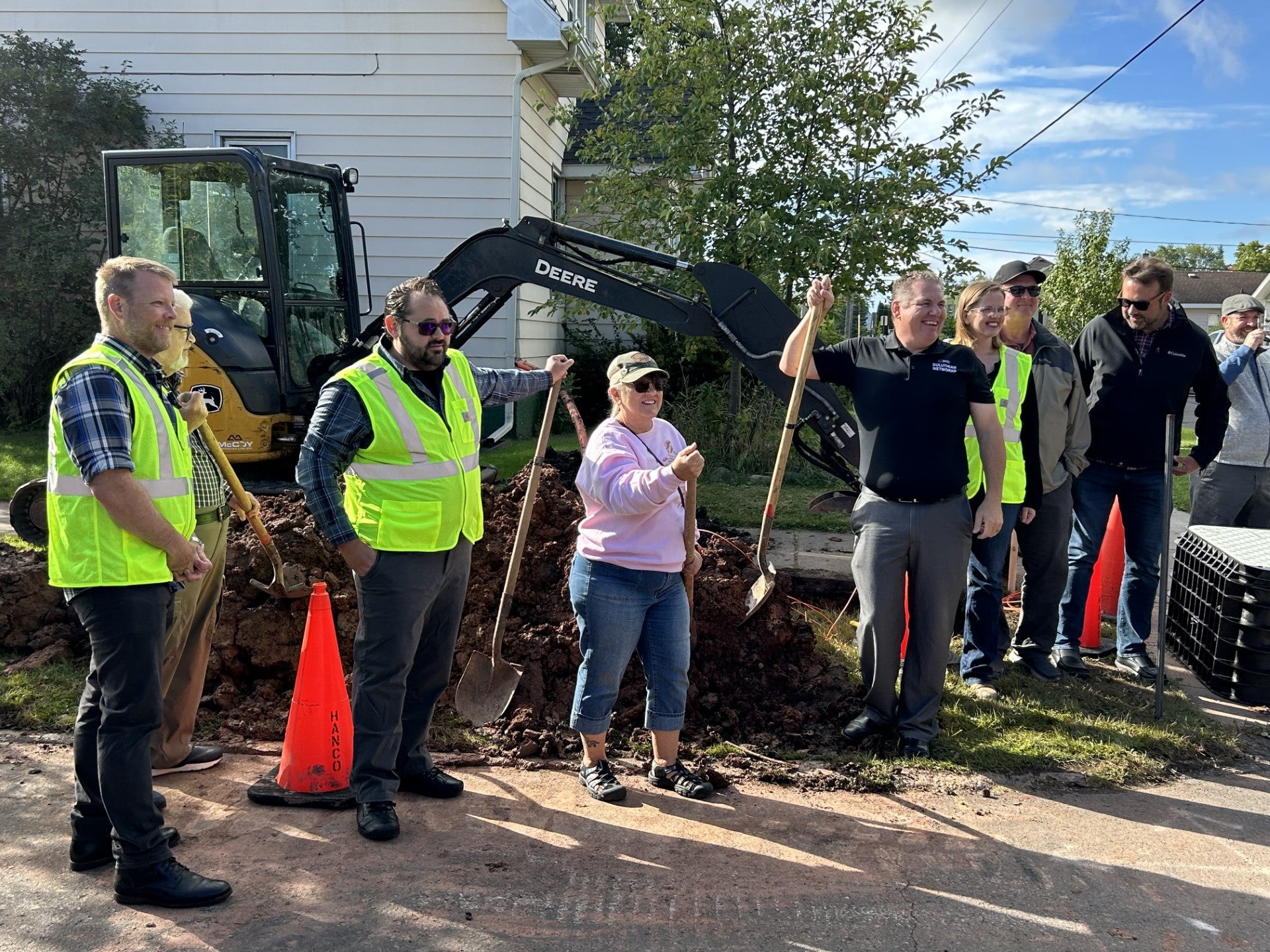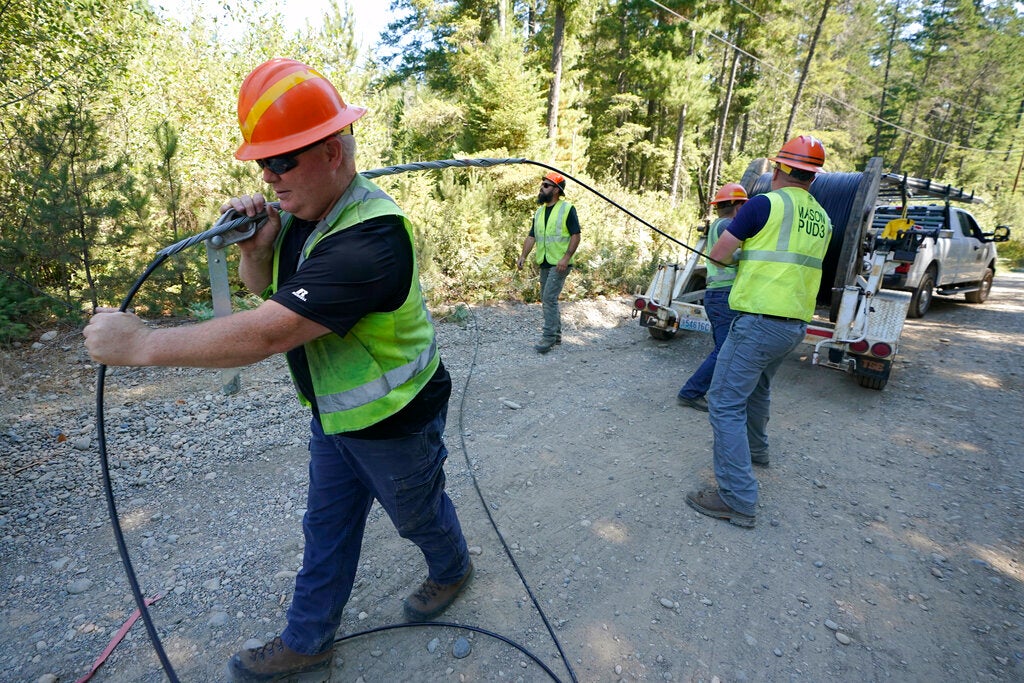Leaders from the Biden Administration said access to high-speed internet will bring opportunity and dignity for residents of rural communities in Wisconsin and across the country.
Tom Perez, White House Director of Intergovernmental Affairs, and Don Graves, U.S. Deputy Secretary of Commerce, visited Dairyland Power Cooperative in La Crosse on Thursday to talk about federal money for broadband infrastructure.
Dairyland is one of the recipients of the Middle Mile Broadband Infrastructure Grant, a program created through the 2021 Bipartisan Infrastructure Law. The power cooperative received nearly $15 million in June to retrofit 240 miles of transmission lines with fiber optic cable for broadband over three years. The project will benefit Barron, Polk, Burnett and Washburn counties, as well as three Minnesota counties and two Iowa counties.
News with a little more humanity
WPR’s “Wisconsin Today” newsletter keeps you connected to the state you love without feeling overwhelmed. No paywall. No agenda. No corporate filter.
CEO Brent Ridge said the funding has allowed Dairyland to “accelerate projects that would have been done eventually, but far too late.”
“We’re here to improve the lives of the members we serve,” Ridge said.”In the ’30s, we brought them electricity where they had none. We’re now doing it with broadband and fiber. Then fiber ties (contributes) to health care, education, food sufficiency and economic development.”
The ripple effects of broadband access were the center of a roundtable discussion hosted by Graves and Perez with a community health center, the Wisconsin Farmers Union, the local union chapter of International Brotherhood of Electrical Workers and others.

In an interview with WPR, Perez said he views broadband as no different from access to clean water, electricity and healthcare.
“These are fundamental human needs, community needs that have to be accessible and affordable to everyone,” he said.
Perez said the COVID-19 pandemic highlighted the inequity in broadband access, with stories of K12 students sitting in parking lots at libraries or fast food restaurants trying to access lessons or homework online. He said federal investments in infrastructure in the last two years have worked to make the most of what he described as a historic moment for the U.S., similar to rural electrification of the 1930s and creation of the interstate highway system in the 1950s.
Chris McArdle Rojo, La Crosse County Library Director, was a part of the panel and shared how rural residents often come to the library to access important online resources, like registering kids for school, doing online banking and accessing their electronic medical record.
“I think especially veterans, seniors, they lack the background to be able to shift their world from paper to digital, and they don’t have any other choice,” she said. “They come to us at the libraries and they’re sitting in the middle of everybody else trying to deal with medical things and banking things.”
McArdle Rojo said even some of the county’s library locations only have the option for a DSL connection.
She said the growing expansion of broadband represents a first step in bringing new life to rural communities.
“I just think it’s going to be an equalizing opportunity for everybody,” she said. “I loved what (Perez) said about your zip code should not define your future. I think that’s going to be critical moving forward, that it doesn’t matter where you live, everybody’s going to start from the same point.”
She said libraries will continue to play an important role in improving digital literacy, but ensuring residents have reliable internet access at home will provide them with the confidentiality and dignity they deserve.
Wisconsin Public Radio, © Copyright 2025, Board of Regents of the University of Wisconsin System and Wisconsin Educational Communications Board.







